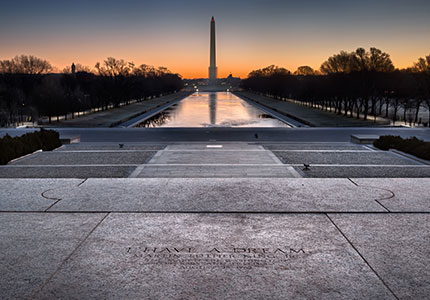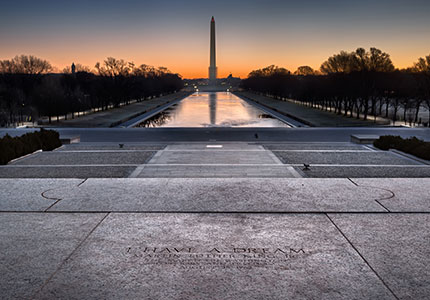This article was authored by Alexander M. Wegner*

(C) Jeremiah Say
Insofar as Public Relations (PR) consists of re-framing reality through dialogue with print media, the industry is passé. Once the source of all news, print publications now cater to a declining fraction of society, which is often comprised of those who have come to be suspicious of technology. As the lifeworld – the contexts we operate in, which used to be exclusively material – becomes digital, Augmented Reality (AR) and Virtual Reality (VR) mediate, if not subsume, what is. The immersive quality of information and the speed with which it can be dispersed as well as the consequential pace at which it must be produced, leads to a gradual democratization of truth.
Though we tend to speak of a democratization of information, this notion is misguided. Far from being equal participants in the production of the facts that make up what we think to be true, we are at the whim of those collating facts in line with their worldviews, and of the algorithms that cater to our preferences. In other words, not information is being democratized, since we merely are its consumers, but truth. As Oprah noted in her recent Golden Globe speech, we each speak our own truth, reflective of a worldview best aligned with the information we each find palatable.
This vision of a digital future, in which fact and believe merge, giving rise to subjective realities, is no more than a distant possibility in the abstract. In practice, however, as the below short film illustrates, such a future is as unsettling as it is captivating – it transforms what it means to be.
Amid a world so construed, PR professionals – even when employing digital tools – can do little more than add further narratives to an ocean of information, whose truths are rooted in subjectivism. In other words, there no longer is truth to be attained, but realities to be made. For PR professionals to craft narratives that come to be realities requires a return to one of the oldest customs of civilization: storytelling. Yet what is a story? What sets it apart from other narratives?
First and foremost, stories are timeless narratives with a purpose. Their timelessness derives from the moral dilemmas they seek to resolve, which are never limited to facts that are specific to a time and place, but are questions intrinsic to the human condition, to what it means to be. Their purpose consists in helping their consumers build a future, based on truths that must be attained, rather than constructed, which leads to them being of collective, not fractional, value.
Second, stories transcend cultural boundaries, a property that is essential for shaping a world whose constituents – be they nation states or individuals – are increasingly more interdependent; the economies ordering societies, united in their commitment to a mantra of growth, produce effects that all shoulder, regardless of their extent of responsibility for producing these effects. With identity politics at present resembling sectarianism, not the communitarianism that Dr. King voiced at the Washington Monument, stories have the potential to unite rather than antagonize.
What distinguishes stories from other narratives, then, is that they remind us of what we have in common: a shared fate as humans, which brings with it a shared obligation for building a future. Thus, the future of PR consists, above all, in the realization that the narratives we convey are only as meaningful as the issues or items to which they speak. For organizations, this means that the best point at which to bring in PR professionals is at the time decisions are being made. It is then that the value of those decisions can be assessed, and with it the prospective force of narratives about them. Indeed, it is the intrinsic worth of their content that explains the potency of stories.
Stories, far from being confined to the realm of concepts, have tangible implications. Consider, for instance, the 2015 Hyundai short film “A Message to Space.” In it, Hyundai uses one of its products to tell a meaningful story about love, as one of the most fundamental human emotions. In doing so, it transcends time and place – garnering 71 million views on YouTube – and fulfills a twofold purpose: on the one hand, it presents Hyundai as a force for good and a brand that cares; on the other, it visualizes the beauty of love and highlights its significance for our lifeworld. In viewing the short film, we not merely consume information, but attain a truth that can create realities – not merely for Hyundai, seeing sales rise, but for society, reminded of what matters.
Hyundai "A message to space" - John S Park from QUAD productions on Vimeo.
Hyundai - A Message to Space from addictfilms on Vimeo.
Thus, for organizations and PR professionals, the decision to turn to stories need not be a philosophic – or even a moral – one, but can be justified on the basis of self-interest alone. As the boundary between truth and untruth disappears in the fog of information, whilst preferences replace principles, cutting through that fog means having to invest in and convey radiant ideas. Those will come to be the narratives that provoke, will be remembered, and can become realities; succeeding in tomorrow’s business environment requires pursuing value first and profit second.
As Hyundai demonstrated, crafting stories presupposes an ability to listen, imagine, and engage: you need to know your audience to win it over; you need to anticipate the future to leverage the present; and you need to fine-tune your voice to captivate listeners. Business today, uprooted from the physical markets in which it once unfolded, fails on all three fronts, lacking reciprocity.
Storytelling constitutes the future of PR: being a purposeful social practice, it invites the listening, imagination, and engagement that value-creation requires; and being independent of both time and place, it evokes our common fate and the responsibility that comes with it. Thus constituted, stories exert a radiance that cuts through the fog of information, which turns them into the harbingers of new realities. After all, in helping build a world, communication grows meaningful.
***
Alexander M. Wegner is a OYW Ambassador and a Project Manager at the Dubai office of Richard Attias & Associates (RA&A), a high-powered communication advisory firm that helps clients globally spark conversations, shape perceptions, and generate impact through world-class events and initiatives. He holds a Master's degree in political theory from The University of Chicago and a Bachelor's degree in international affairs from Georgetown University School of Foreign Service, and draws on over a decade of experience in the Middle East. Aside from being a Global Shaper at the World Economic Forum (WEF), a Fellow at the Royal Society of Arts (RSA), and a One Young World Ambassador, Alexander is a member of the Chicago Council on Global Affairs, the Mars Society, and the Planetary Society.


